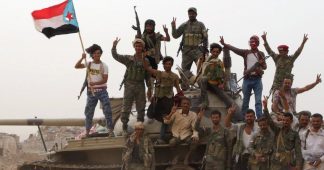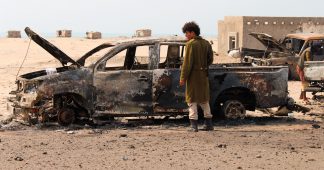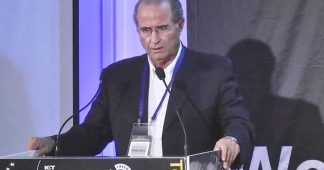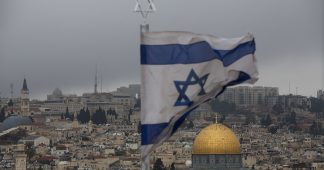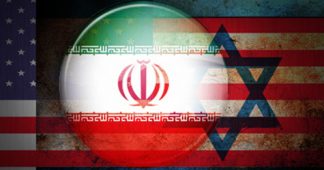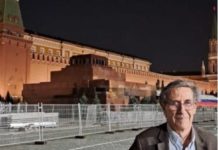Israel is hoping to capitalize on internal tensions in Yemen, throwing its support behind a UAE-backed militant group with eyes on secession and control of the coveted Bab al-Mandab Strait.
by Ahmed Abdulkareem
Aug 7, 2020
ADEN, YEMEN — As the war in Yemen nears its sixth year, the situation in the war-torn nation is escalating as Israel enters the fray, throwing its support behind the Emirati-backed separatist militant group, the Southern Transitional Council (STC). The STC has already effectively captured Aden and more recently seized Socotra Island. Israel’s entrance into the already convoluted and crowded theater is likely to open the door for further escalation, particularly in the Red Sea and Bab al-Mandab Strait.
Amid the ever-growing normalization of relations between Tel Aviv and wealthy Gulf Aab states, the Emirati-backed STC, now the de facto authorities in the south of the country, have already established a secret relationship with Israel encouraged by the United Arabic Emirates (UAE) according to informed sources in Aden. Despite strong opposition from leaders inside the STC and from Southern Yemen’s public, the UAE-backed group receives various forms of support from Israel, including weapons and training facilitated by the UAE following secret talks between STC officials and Tel Aviv sponsored by the UAE.
Prior to that, the Deputy Head of the STC Hani bin Breik announced that the group has a willingness to establish relations with Israel, saying “the peace with Israel is “coveted and aspiring” for them. However, he claimed that any relationship with Israel should be within the framework of the Arab peace initiative made by the late Saudi King Abdullah bin Abdulaziz, but he stressed their willingness to establish relations with any country that helps them to “restore their state.”
The development comes after the Warsaw Conference held in February 2019 that ostensibly focused on security in the Middle East. There, Khaled al-Yamani, Yemen’s former foreign minister, executed a very public warming of relations with Israeli Prime Minister Benjamin Netanyahu. In its wake, U.S. peace envoy Jason Greenblatt, who also served as Donald Trump’s personal lawyer and advisor on Israel, remarked that the friendly incident could be the first step in establishing cooperation between Yemen and Israel.
In a related development, Israel’s most widely-read newspaper, Israel Today, claimed that Tel Aviv has been conducting secret meetings with the Emirati-backed separatist Southern Transitional Council (STC), reporting that the STC are “secret friends” to Israel. In fact, that positive attitude towards Israel has been confirmed by the Deputy Head of the STC himself in a video posted on YouTube.
Superficially, Tel Aviv’s support aims to help the STC against the local forces that oppose them, but the fact is that Israel is trying to establish a foothold on the Yemeni Islands in the Bab-El-Mandeb Strait. The Red Sea and Bab al-Mandab are vital interests to Tel Aviv. For their part, the STC needs not only to tighten its control over Yemen’s southern districts and pursue its long-time goal of declaring secession from the north of the country, but they need a gateway to the United States and to the world. Like many Gulf Arab states, the STC has long believed the road to American validation runs through Israel.
However, southern political leaders who spoke to MintPress realize that relations with Israel will not bring about “an independent state” and that that relationship will be an obstacle in getting public support. Moreover, southerners consider the Palestinian cause to be the cause for all, a situation that STC will not succeed in changing. They say that the Palestine issue is one that concerns Muslims as a whole, something that any local force could never hope to change.
Houthi resistance
Of all Yemen’s myriad political forces, tribes, and military powers, the Ansar Allah-led military, is best prepared, and likely the most willing, to take retaliatory action against both the STC and Israel. Ansar Allah, the political wing of Yemen’s Houthis, are committed to the territorial integrity of Yemen and announced that that they would not hesitate to “deal a stinging blow” to Israel in the case that Tel Aviv decides to involve itself in Yemen.
A high-ranking official quoted the words of Ansar Allah leader Abdulmalik al-Houthi when he threatened Israel in November 2011.” Our people will not hesitate to declare jihad (holy war) against the Israeli enemy, and to launch the most severe strikes against sensitive targets in the occupied territories if the enemy engages in any folly against our people.” In 1956, 1967, and 1973 war with Israel, Yemen successfully closed off the Bab Al-Mandab Strait and prevented Israeli ships from crossing through it.
The National Salvation Government in Houthi-controlled Sana’a accused the United Arab Emirates of providing cover for Israel’s efforts in southern Yemen. “The Israeli enemy sees Yemen as a threat to it,” said Information Minister Dhaifalla Al-Shami, “especially in its strategic location, so it has worked to find a foothold in Yemen through the UAE’s role.” Recently, UAE ambassador to Washington, Yousef Al-Otaiba, said in an article for the newspaper Yediot Aharonot that his country “pushed for initiatives that would have granted Israel privileges.”
Given the fact that the fragmentation of the Middle East is consistent with Israel’s strategy in Yemen, the STC’s, and by extension the UAE’s, relationship with Israel not only violates the Yemeni religious and national constants held firm by nearly all Yemenis, but it is also a threat to the prospect of a unified Yemen. Yemeni political forces, including Ansar Allah, see Israel’s efforts to back the emergence of a break-away separation state in the south as a dangerous game.
In fact, unconfirmed reports allege that Israel participated in the war against Yemen on behalf of the Saudi-led coalition as a part of a series of covert interventions involving mercenary forces, the reported launching of dozens of airstrikes in the country and even the dropping of a neutron bomb on Nuqm Mountain in the middle of the capital city of Sana’a in May of 2015. But any Israeli presence in the south will lead to an inevitable clash with Israel, according to decision-makers in Yemen.
Feature photo | An emblem of the STC at the headquarters of the separatist Southern Transitional Council in Ataq, Yemen August 27, 2019. Ali Owidha | AP
* Ahmed AbdulKareem is a Yemeni journalist. He covers the war in Yemen for MintPress News as well as local Yemeni media.

